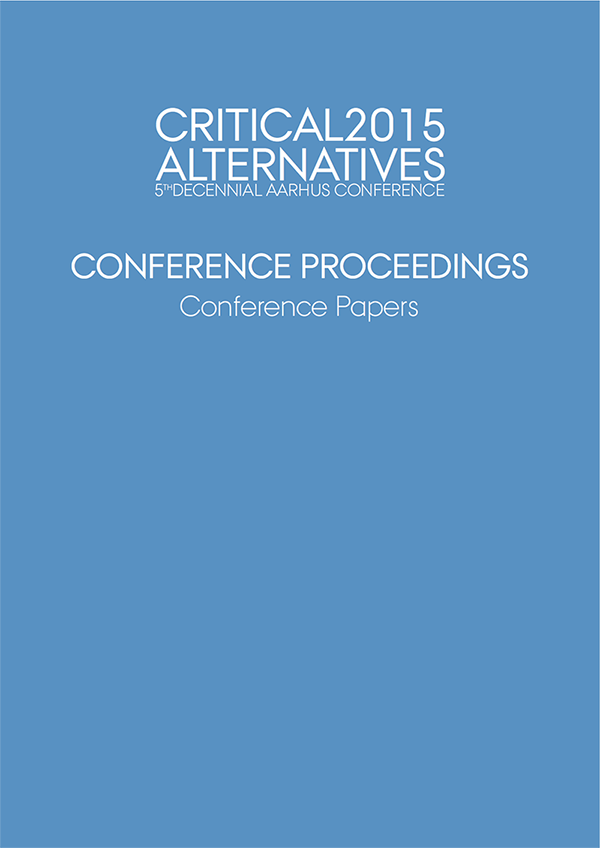Making “World Machines”: Discourse, Design and Global Technologies for Greater-than-self Issues
DOI:
https://doi.org/10.7146/aahcc.v1i1.21326Nøgleord:
Sharing, ecological, environment, sensing, inference, networks, neoliberalism, politics, archetypes, values.Resumé
The world machine is a new archetype for a socio-technical system drawing together a group of tools that combine computational powers with a social agenda of cross-world collaboration in resistance to dominant market rhetoric. Specifically, we look at how powers to connect, sense and infer can be combined and turned to crowd-sourcing public engagement with shared world issues - as an alternative to business-as-usual in the context of developing and deploying networked technology. We combine theoretical aspects of world machines, such as what a political entity of this kind might seek to do, and practical exercises that focus on design, with a view to exploring viability and examining what a related research agenda might involve.
Referencer
Aoki, P., Honicky, R., Mainwaring, A., Myers, C. Paulos, E., Subramanian, S. and Woodruff, A. A Vehicle for Research: Using Street Sweepers to Explore the Landscape of Environmental Community Action, Proc. CHI’09 (2009) 375-384.
Bateson, G. Steps to an Ecology of Mind. Jason Aronson Inc. Northvale, New Jersey London, 1972
Beck, U. What is Globalization? Polity Press, 2000
Bennett, J. The Enchantment of Modern Life. Princeton University Press, 2001
Bohman, J. Critical Theory, 2005: http://plato.stanford.edu/entries/critical-theory
Buckminster Fuller, R. Operating manual for spaceship earth, Southern Illinois University Press, IL (1969)
DiSalvo, C., Nourbakhsh, I., Holstius, D., Akin, A and Louw, M., The Neighborhood Networks Project. Proc. PDC 2008
Dourish, P. HCI and environmental sustainability: the politics of design and the design of politics. DIS’10
Guattari, F. Chaosophy - Texts and Interviews 1972- 1977. SEMIOTEXT(E) Foreign Agents Series. 2007
Held, V. The Ethics of Care: Personal, Political, and Global. Oxford, 2006
Holmes, B. Escape the Overcode: Activist Art in the Control Society, vanAbbemuseum, 2009: https://brianholmes.wordpress.com/2010/07/16/this- book-could-be-yours/
Irani, L. and M.S. Silberman. Turkopticon: Interrupting Worker Invisibility in Amazon Mechanical Turk” Proc. CHI’13, 2013
Light, A. (2011) Digital interdependence and how to design for it, interactions, 18 (2), March + April 2011, ACM, New York, NY
Light, A. and Miskelly, C. Design for Sharing, Sustainable Society Network+ Working Paper: https://designforsharingdotcom.files.wordpress.com/20 14/09/design-for-sharing-webversion.pdf
Morton, T. The Ecological Thought. Harvard University Press, 2010
Papanek, V.J. Design for the real world: human ecology and social change (2nd edn), Academy, Chicago (1985)
Puig de la Bellacasa, M. Nothing comes without its world: thinking with care. Sociological Review, 2012, 60(2):197-216.
Robinson, F. Globalizing Care: Ethics, Feminist Theory, and International Relations. Westview Press, 1999
Warren, K. Ecofeminist Philosophy. Roman & Littlefield Publishers, Inc., 2000




